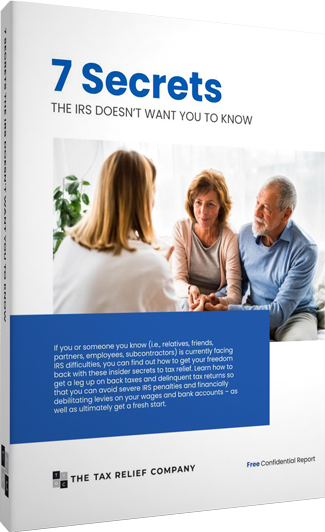Nine Tax Tips For Restaurant Owners
Filing your taxes is always stressful. However, tax time for restaurant owners can easily have you scratching your head in confusion. Knowledge of business accounting is essential. You need to understand your potential deductions and the correct reporting of them. It’s necessary to have a tax pro who can help make sure you don’t miss anything.
Here are nine tips to help before tax time rolls around.
-
Deduct everything on your menu
You are probably already writing off all of your food and beverage costs, but are you writing off ingredients such as spices and condiments? Make sure you’re also accounting for waste and spoilage. You must track food and beverage costs as they are incurred, not as the inventory is used.
-
Pick-up and delivery and your mileage deduction
Do you or your staff drive to pick up food from a vendor, a green market, your fishmonger or the like? If you offer food delivery, be sure to keep track of the mileage. A mobile app is easy to use and convenient. MileIQ or Triplogmileage are, but two apps for your consideration.
If you use your personal vehicle to deliver food or for catering events, don’t forget that you can deduct either the miles you drive for your business or the actual expenses you incur for driving in your restaurant business. Not both.
-
Work Opportunity Tax Credit
Do you employ veterans, recipients of public assistance, the disabled, or former felons? You could be eligible for a tax credit if you employ people from groups like these, and others who have difficulties getting employment. If you do, make sure you’re benefiting from the Work Opportunity Tax Credit.
-
Free meals
When you provide meals to employees at a restaurant, the cost is generally deductible to the restaurant and not taxable to employees. This cost may be included in the cost of food or recorded as a separate expense.
-
Give and get
Just like individuals, restaurants who donate food to 501(c)(3) status organizations can deduct the value of these donations on their tax return. Be careful though it is only the food that is deductible– staff time and the full meal cost as charged on the menu is not deductible.
-
Capital investments
A recent change in Section 179 of the tax law stated that you could deduct the total lump sum of large capital investments such as heavy equipment. Previously, you could only depreciate the expense over a number of years. That makes it more affordable for small business owners like you to buy up to $500,000 worth of qualifying equipment and deduct it all at once in that tax year.
-
Understanding your sales tax requirements
Make sure you are entirely up to date on the city’s sales tax requirements and the state’s where the restaurant is located. Especially important if you have multiple locations. Cities, counties, and states often have different sales tax requirements. Each area in which you maintain a restaurant may require separate sales tax collections and filings. Hence, it’s critical to keep track of these crucial financial information so you can properly report and submit all sales taxes to all respective agencies.
-
Get a firm grip on employee tips
All cash and non-cash tips an employee receive are income and are subject to Federal income taxes. All cash tips received by an employee in any calendar month are subject to social security and Medicare taxes and must be reported to the employer unless the employee’s tips during a single calendar month while working for the employer total less than $20. Cash tips include tips received from customers, charged tips (e.g., credit and debit card charges) distributed to the employee by his or her employer, and tips received from other employees under any tip-sharing arrangement.
Employees who receive cash tips of $20 or more in a calendar month while working for you, are required to report to you the total amount of tips they receive. The employees must give you written reports by the tenth day of the following month. Employees who receive tips of less than $20 in a calendar month aren’t required to report their tips to you but must report these amounts as income on their tax returns and pay taxes if any.
Cash tips include tips received directly from customers, tips from other employees under any tip-sharing arrangement, and charged tips (for example, credit and debit card charges) that you distribute to the employee. Both directly and indirectly tipped employees must report tips received to their employer. (information provided by the IRS)
-
The Employers responsibility for payroll taxes
If you’re an employer, you have different payroll tax obligations depending on various factors. One of the factors is having tipped employees. If you have employees who receive cash tips from your customers, they may constitute taxable wages for payroll tax purposes. This designation subjects you as an employer to additional payroll tax withholding, reporting, and payment requirements.
If you don’t pay payroll taxes for your business, you’ll receive a bill from the IRS and likely a penalty. According to the IRS, employers who don’t follow employment tax laws are subject to civil and criminal penalties.
If you aren’t tax compliant and have received a notice from the IRS or are expecting one, we can help you resolve your tax problems. Contact us at https://sfstaxproblemsolutions.com/contact-us-at-sfs-tax-problem-solutions-in-stuart/



